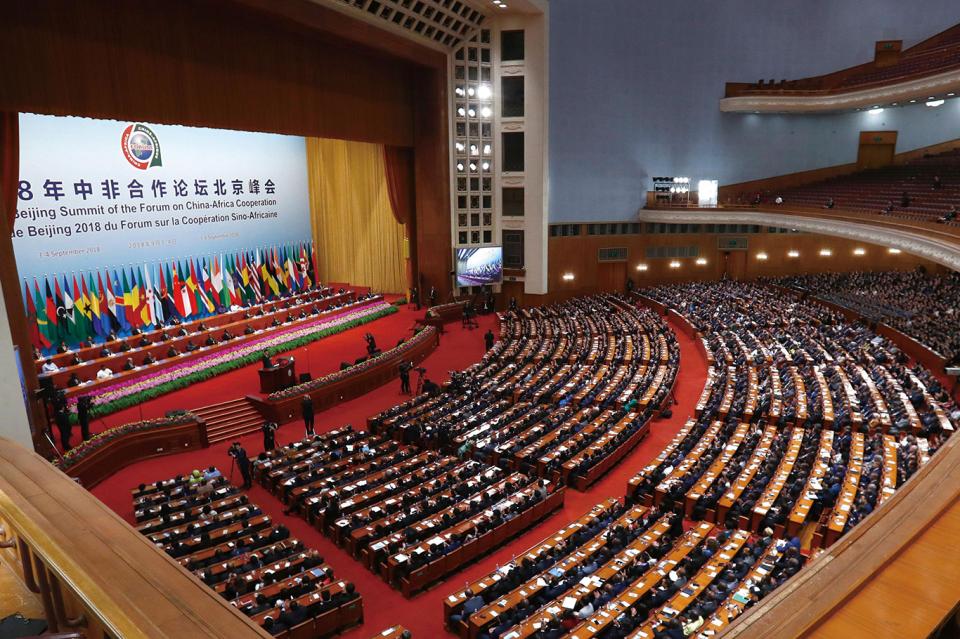While China’s financial commitment to Africa has remained the same, there have been
noticeable changes in its composition. The total in grants, zero-interest loans, concessional loans, and credit lines has decreased from US$40 billion in 2015 to US$35 billion. Concessional loans are now in the same category as grants and zero-interest loans, instead of combined with export credits as they were three years ago.
According to Yang Baorong, an associate research fellow in African studies from the Chinese Academy of Social Sciences, the changes come in response to the dynamics of many African countries’ economic situations. Yang said that in the early 2010s, rapid economic growth came from rising prices for energy and commodities (a major component of Africa’s exports), and China has primarily focused on promoting trade with African countries.
But more recently, many African countries have seen an exodus of international capital resulting from a strong US dollar. The increased trade deficit with China has also sparked local criticism. Yang said that by reducing grants and loans and creating a special fund for developing and financing imports from Africa, China has adapted its policy to foster African industrial development and address these issues.
In his speech, Xi also pledged that China would “increase imports, particularly non-resource products.” To achieve this goal, Xi said China would launch a trade facilitation initiative and implement 50 trade facilitation programs for Africa. Some of the efforts may have taken effect. In 2017, China-Africa trade volume hit US$170 billion, up 14 percent from 2016. In the meantime, Africa’s trade deficit to China reduced to US$19.5 billion, a 45 percent drop on the previous year.
Nearly two decades since FOCAC began, the focus of China-Africa cooperation has in more recent years shifted from trade to industrial cooperation, Liu said. In the past, Chinese investment was often government-driven, and was typically characterized by mega-projects for which China provided all the necessary equipment and labor. Cooperation has become increasingly market-oriented, he claimed. Instead of focusing on deals and individual projects, policymakers from both sides now aim to improve the overall trade and investment environment, which Liu said would foster more Chinese investment and boost local employment.
“After 40 years of reform, China has accumulated a large volume of industrial capacity, while many African countries are still in the initial phase of their industrialization. Industrial cooperation between the sides will be mutually beneficial,” Liu said.
More specifically, Xi proposed an “investment-construction-operation model.” Under this model, China will help African countries to build industrial parks which will be equipped with necessary infrastructure facilities, such as energy, water and roads.
“A major challenge many African countries face is the inadequate development of infrastructure and supply chains, which makes it difficult for international capital to find a viable way to invest,” Yang Baorong told NewsChina. “The investment-construction-operation model will solve this problem, which has proved to be effective in China’s own development experience.”
With the new approach, Liu estimated that China’s total investment in Africa will increase from US$32.4 billion in 2014 to US$100 billion in 2020. In his speech, Xi also pledged that China would “encourage Chinese companies to make at least US$10 billion of investment in Africa in the next three years.”
Responding to Xi’s speech, Xu Jinghu, the current Special Representative of the Chinese Government for African Affairs, told media on September 4 that China’s focus in its future cooperation with Africa will be the sustainability and feasibility of projects.
“African countries are now striving to achieve industrialization, modernization and diversification of their economies, but their efforts have been hampered by the lack of capital, talent and construction,” Xu said. “China will strive to help Africa address these bottlenecks thorough discussion with our African counterparts.”

 Old Version
Old Version